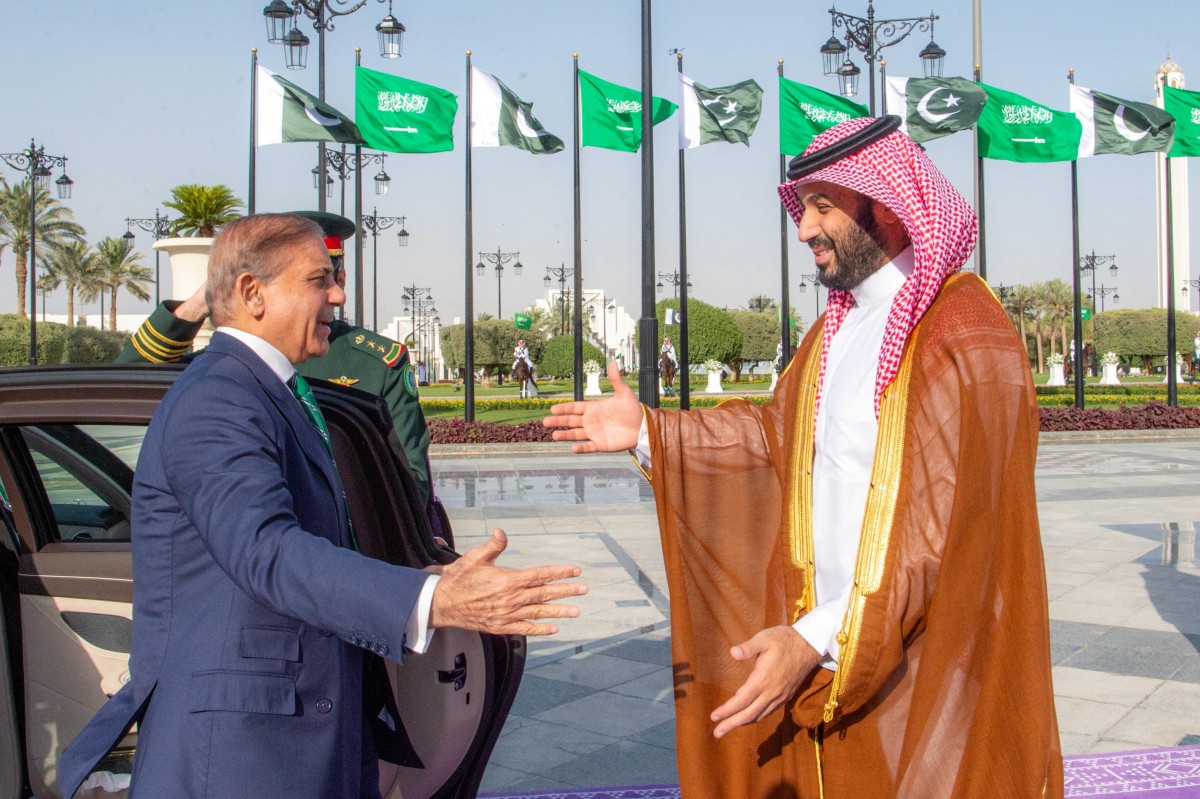Paris, France – The new mutual defence pact signed by Pakistan and Saudi Arabia this month surprised many and came just days after the Gulf region was rattled by Israeli strikes on a Hamas compound in Qatar.
“Even those accustomed to dramatic developments in the Middle East and South Asia were caught off guard by the announcement,” said Joshua White from the Brookings Institution.
While the agreement follows decades of close military ties between the countries, questions over its exact parameters, particularly any potential nuclear dimensions, remain unanswered.
Historical ties
“The pact clearly formalises and deepens decades of Saudi-Pakistani security and defence cooperation, building on a landmark 1982 protocol agreement,” said White, which saw a significant deployment of Pakistani troops to Saudi Arabia.
“There are a large number of Saudi military personnel who have been trained by Pakistanis, and there are Pakistani officers seconded within the Saudi Ministry of Defence,” added Camille Lons, a Gulf expert at the European Council on Foreign Relations.
According to Lons, the pact likely resulted from lengthy negotiations.
“We must be cautious in linking it directly to recent developments in the region, although the broader analysis that sees it as a response to growing Israeli power in the region and Saudi doubts about American security guarantees remains valid,” she told AFP.
For Syed Ali Zia Jaffery from the Center for Security, Strategy and Policy Research at the University of Lahore, “Pakistan will find this agreement as a way to show its growing importance in the security architecture of the Middle East” while Saudi Arabia, which has long relied on US muscle, “is looking to diversify its sources of security”.
What about the nukes?
Pakistan is believed to have around 170 nuclear warheads, according to the Bulletin of the Atomic Scientists, but how they factor into the deal remains ambiguous.
There has been no official statement from either side about the establishment of a nuclear umbrella.
To date, only two such agreements exist: the US nuclear umbrella covering its European allies and Russia protecting Belarus.
Several Saudi and Pakistani voices have hinted at this possibility.
Saudi Arabia included “conventional and non-conventional means in the treaty text,” a retired Saudi general told AFP, speaking anonymously due to the sensitivity of the topic.
“We made it very clear and written that it includes the Pakistani nuclear weapons,” he added.
Saudi analyst Ali Shihabi, known to be close to the royal court, also told AFP that “nuclear is an integral part of this agreement”.
Regional experts, however, have asserted that the situation is far from clear.
“Pakistan does not have any nuclear umbrella and there is just no evidence to suggest that Pakistan plans on providing one to Saudi Arabia,” said Jaffery.
“Pakistan’s nuclear doctrine, policy, posture, strategy, and capabilities are only India-centric.”
Others suggested a lack of clarity on the issue may be intentional.
“It’s impossible to know the details of any potential arrangement in this area,” added Bruno Tertrais from the Foundation for Strategic Research in Paris, “because that’s part of deterrence: what’s often referred to as strategic ambiguity.”
And India?
Saudi Arabia maintains good relations with Delhi, Pakistan’s main rival.
India’s rapidly developing economy relies heavily on petroleum imports, with Saudi Arabia ranked as its third-largest supplier according to the Indian foreign ministry.
“Would Saudi Arabia get involved in an escalation between Pakistan and India? I don’t think so. That would go completely against the kind of diplomacy Saudi Arabia is trying to pursue — which, like India, is one of multi-alignment,” explained Lons.
The signing of the pact comes just months after Pakistan and India fought an intense four-day conflict — one of the worst crises between the arch rivals in decades.
So how would Saudi Arabia react to renewed hostilities?
“Riyadh’s instinct would be to stay passive, preserving hard-won trade equities with India while honouring its security obligations to Pakistan,” said White.
“That balance will now be harder to sustain.”








